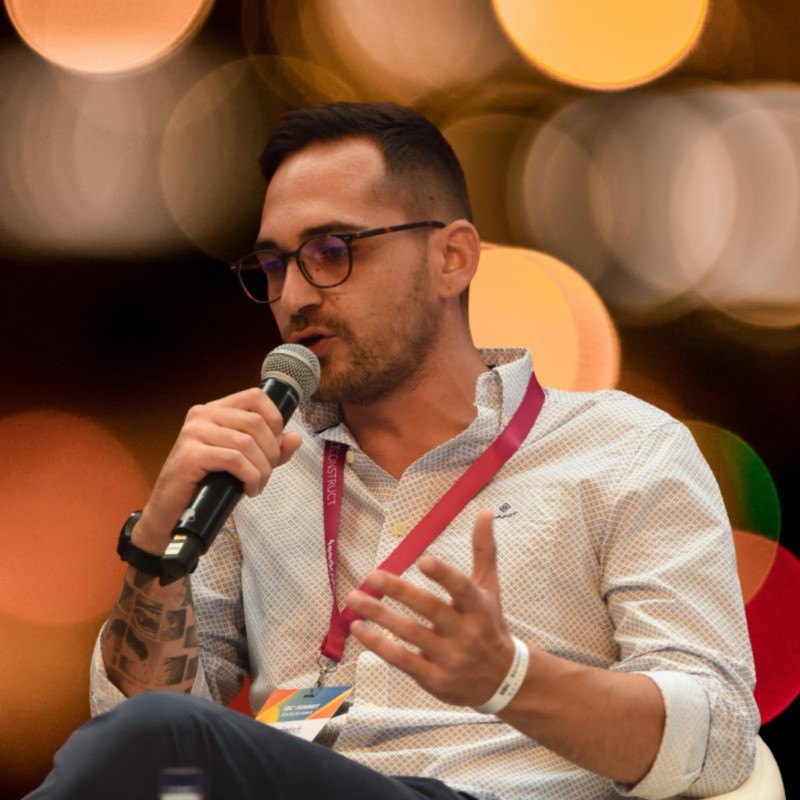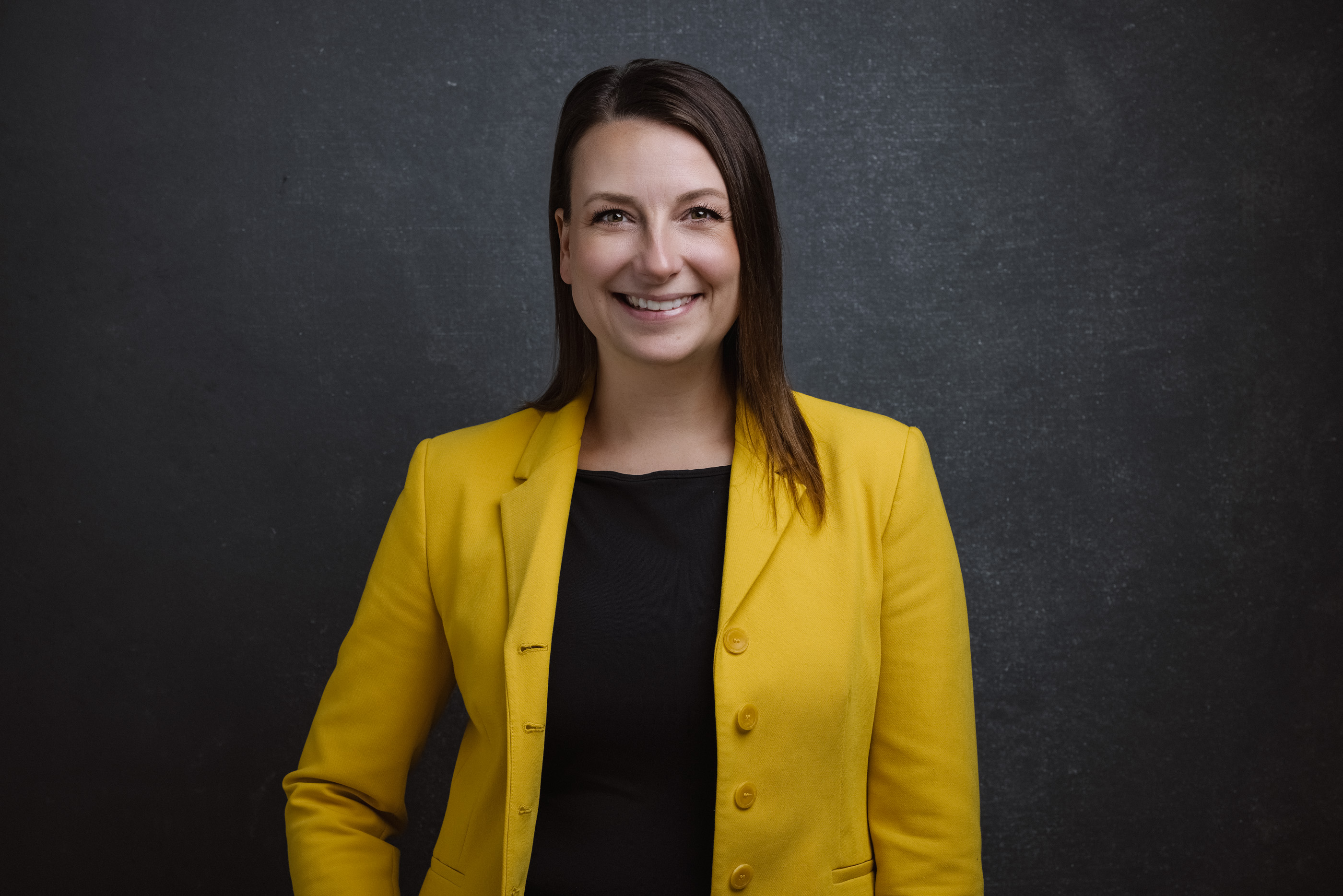Mark Grech — Founder and CEO of Pyaza | Emerging Tech Consultant
Mark has been in the iGaming industry for over 10 years, and has held leadership roles across product, marketing and technology. Combining his iGaming background with deep involvement in Crypto, Blockchain, and Web3 for the last 8 years, he is now a leading voice in the fields of product and emerging tech. His latest venture, Pyaza, is an innovative platform designed for networking, community-building and sharing ideas that shape the future.
Let’s start from the top: How did you first land in iGaming, and what’s kept you in the game all these years?
I actually stumbled into iGaming in a very natural way. At the start, it was curiosity mixed with opportunity. What kept me here all these years is the speed of innovation and the constant evolution. You are never standing still in this industry. Every year, there is a new challenge, a new regulation, a new product type, and I have always loved the feeling that I am learning and adapting in real time. More importantly, it is the people. iGaming is global and very connected, and I have been lucky to meet some of the most inspiring and ambitious people here. That network, and the drive to push the industry forward, is what has kept me in the game.
You’ve been on the operator side, the affiliate side, and now the product/tech side. What’s been the most surprising shift for you?
The biggest shift for me has been how technology is now the true driver of competitive advantage. On the operator side, it was about marketing and player acquisition. On the affiliate side, it was about building reach and partnerships. But on the product and tech side, I realised that if you do not have the right infrastructure, security, and innovation at the core, everything else eventually falls behind. What surprised me most is how much operators underestimate this. Many still see technology as a cost instead of a growth enabler. Once I made that transition, I understood that building strong products and secure payment solutions is what really scales a business long-term.
You recently founded Pyaza. Tell us the story behind it. What problem were you solving, and where’s it headed?
Pyaza was born out of frustration with existing platforms. Communities in iGaming, fintech, crypto, or any digital industry were scattered across social networks that were either too noisy, filled with spam, or simply not built for professionals. There was no single place where individuals, companies, and creators could connect in a meaningful way, showcase their work, and actually do business. I wanted to fix that.
Pyaza is solving the problem of fragmented networking. We built it as an industry-specific space where people can connect, host events, collaborate, and even exchange value directly through our token. Where it is headed is even more exciting. We want Pyaza to become the go-to place for digital industries to meet, learn, and grow together. It is not just another social app; it is a movement to give professionals control over their networks and the tools to thrive.
Your role today sits at the intersection of product, data, and growth. How do you keep all those threads aligned?
For me, alignment comes from clarity. I always start with the bigger picture and then break it down into priorities that the team can act on. Product, data, and growth are not separate worlds. They all feed into each other. A product without data insights will never reach its full potential, and growth without a strong product is short-lived. I make sure we create a shared vision that every team member understands, so whether they are looking at numbers, building features, or working on campaigns, they know how their work ties back to the same goals.
What’s a habit or system you use to stay focused in the middle of competing priorities?
I keep things simple. Every morning I write down three key priorities that absolutely need my focus that day. If I get those done, I know I have moved the needle. This helps me cut through noise and avoid spreading myself too thin. It also gives me a sense of balance because I know I cannot do everything at once. I focus on what really matters, and I empower others to take ownership of the rest.
What’s a tool or workflow hack you’ve shared with every team you’ve worked with?
One thing I always push for is building visibility. Whether it is through shared dashboards, project management boards, or even simple documentation, transparency saves everyone time. A small example is setting up structured pipelines for feedback. Instead of ideas and requests being lost in chats or emails, we create a clear flow where they get logged, reviewed, and prioritised. This sounds simple, but it transforms how a team works and keeps everyone aligned.
How do you balance being data-driven with taking creative risks?
Data is there to guide us, not to cage us. I use data to understand the landscape and validate whether something is working, but I also believe that innovation often comes from stepping outside the numbers. Some of the best ideas will not look good on a spreadsheet at first. The balance is to trust data for decisions that need structure, while giving yourself space to experiment with new concepts. If you always play it safe, you will only ever achieve average results.
What’s something people misunderstand about product roles in this industry?
Many think the product is just about writing requirements or delivering features. The truth is that the product is about connecting dots across the whole business. It is about understanding customers, markets, technology, compliance, and growth, then finding the right way to tie it all together. In iGaming and fintech, especially, the product is about building trust. If you do not focus on security, payments, and user experience as a whole, you are not really doing product. That bigger responsibility is what many overlook, but it is exactly what makes the role so rewarding.
Everyone talks about "engagement", but from a product lens, what kind of content actually moves the needle in iGaming?
The content that really drives engagement is the one that connects directly to the player’s journey. It is not just flashy visuals or generic promotions. It is content that educates, entertains, and creates a sense of belonging. Whether it is personalised game recommendations, transparent explanations about payments, or communities built around shared interests, the needle moves when players feel like the content is speaking to them personally.
In your experience, what role does content play in building trust with users?
Content is one of the strongest trust builders. In iGaming, users are putting real money on the line, so trust is non-negotiable. Clear, transparent, and consistent content shows that a brand respects its audience. Simple things like explaining bonus terms in plain language, sharing security practices openly, or producing content that educates users rather than just selling to them makes a huge difference. Trust comes when users feel informed and respected, not just marketed to.
You’ve been close to performance and growth roles—what type of content have you seen actually impact acquisition or retention?
For acquisition, content that taps into community and storytelling works best. Players want to be part of something bigger than a single promotion. For retention, personalised and data-driven content is key. Things like progress updates, tailored rewards, and content that acknowledges user behaviour keep people coming back. The most impactful content is always the one that makes the user feel seen and valued.
You've likely worked with some brilliant content folks. What stood out about how they approached their craft?
What always impressed me is their ability to blend creativity with clarity. The best content people I have worked with know how to capture attention, but they never sacrifice substance. They understand the product deeply, they talk to users, and they frame stories in a way that connects emotion with value. That mix of empathy and precision is what sets brilliant content professionals apart.
When you’re building something new, how early do you bring in content strategy, and why?
I bring in content strategy right from the start. Content is not something you layer on top of a product later. It is part of the experience. If you do not think about how you are communicating value and building narratives early, you risk creating features that no one understands or connects with. When content is integrated from the beginning, the product has a voice and a story that grows with it.
What’s your take on AI-generated content in our industry?
AI is a tool, not a replacement. It is great for efficiency, testing ideas quickly, and supporting scale, but it should never replace human insight. In iGaming, trust and emotion are critical. If all your content feels automated, you lose that connection. The best approach is to use AI for structure and speed, then add the human layer for authenticity and creativity.
What makes a strong working relationship between product and content teams?
Mutual respect and shared goals. When content and product teams work as partners, not as separate functions, the results are powerful. Content teams should be deeply involved in understanding the product, and product teams should value content as a core part of the user experience. The strongest relationships are built when both sides are curious, collaborative, and aligned on solving real user problems.
What role should SEO play in a product-led growth strategy for iGaming?
SEO is a long-term growth engine, not just a marketing tactic. In iGaming, where competition is fierce and acquisition costs are high, having a strong SEO foundation means you are building organic trust and discoverability. A product-led growth strategy should include SEO at its core, because every piece of content that educates, informs, or solves a user problem helps build authority. The value compounds over time, and it positions the brand as a leader rather than just another operator.
Everyone talks about innovation in iGaming, but from your POV, what does actual innovation look like right now?
Innovation is not about throwing out buzzwords. For me, true innovation in iGaming is about creating products that actually solve user problems and elevate trust. That might be seamless crypto payments, smarter compliance layers that protect users without adding friction, or new game mechanics that genuinely enhance entertainment. Innovation is when technology and creativity come together to make the player’s experience safer, smoother, and more engaging, not just when something looks new on the surface.
What’s a player experience you’ve always wanted to build or reimagine from scratch?
I have always wanted to reimagine loyalty. Most loyalty systems in iGaming today are outdated and transactional. I would love to see loyalty tied to real value and community. Imagine a system where players feel part of a brand’s story, where their engagement unlocks unique experiences, not just points or free spins. Loyalty could be about identity, recognition, and creating lasting connections, not just short-term incentives.
Is there a disconnect between what players want and what operators focus on? If so, why?
Yes, and it comes down to short-term thinking. Players want trust, transparency, and entertainment. Operators too often chase quick wins through aggressive bonuses or short-lived campaigns. The disconnect happens because operators sometimes prioritise acquisition numbers over long-term relationships. The brands that are winning are the ones that put players first and understand that sustainable growth comes from delivering value consistently.
Who’s doing interesting stuff in the iGaming space right now (platforms, products, or people)?
I have seen some really exciting work around crypto casinos and platforms that are embracing decentralisation. They are experimenting with new models of ownership, transparency, and engagement that traditional operators are not even close to. On the B2B side, companies that are focusing on compliance and payments in smarter ways are also leading the way, because they are solving the real pain points that often get ignored. And then there are individuals and teams creating entirely new verticals around social gaming and community-driven experiences. That is where the energy is right now.
Fast-forward a year, what’s something you hope will have changed in iGaming by then?
I hope we see more operators adopting technology not as an afterthought but as a foundation. I want to see stronger security standards, more openness around payments, and a real focus on sustainable growth. If more companies start building with a product and user-first mindset, the industry will become much more resilient and innovative.
If you could write a short note to your past self on your first day in iGaming, what would it say?
It would say: be curious, build strong relationships, and do not be afraid to take risks. This industry moves fast, and the people who thrive are the ones who keep learning and are not scared to challenge the way things are done.
What’s one underrated skill you think more people in this industry should work on?
Listening. Everyone talks about strategy, sales, or technical skills, but the ability to really listen is what unlocks value. Listening to users, to partners, to your own team. If more people focused on listening first, the products and decisions that follow would be so much stronger.
What’s keeping you curious right now (inside or outside of iGaming)?
Right now I am very curious about how digital assets, virtual reality and augmented reality, blockchain technology, and AI are reshaping industries beyond iGaming. We are seeing retail adopt digital payments and tokenised rewards, AI is transforming user experiences in everyday apps, and VR and AR are creating entirely new ways to connect, learn, and entertain. The opportunities with VR and AR are especially exciting because they can change how players interact with games, how communities gather, and even how events are experienced. I stay curious because these shifts in other industries often spark the ideas that lead to the next wave of innovation in ours.
Is there anything else you’d like to add?
Only that iGaming is at a crossroads. We can either keep repeating the same patterns or we can step into a new era where trust, innovation, and community are at the core. I believe the people in this industry have the creativity and resilience to build that future, and I want to encourage anyone reading this to take part in shaping it.





